"Gaza Beauty Show" - The ANZACs in Palestine
New Zealand's forgotten role in the WWI subjugation of Palestine
Following the New Zealand government’s shameful decision yesterday at the UN to still refuse to recognise Palestine during one of the worst genocides in human history, I thought I’d republish a thread I wrote on New Zealand’s involvement in the WWI Sinai-Palestine campaign. It’s an oft-forgotten part of our military history, far away from the killing fields of the European fronts, and not as suicidal as Gallipoli. The campaign’s darker details make it harder to integrate into the ANZAC Myth we get told every April, that Kiwis and Australians invented Mateship on the shores of the Dardanelles as Churchill’s naval shells rained down on top of us. It’s much easier to leave out New Zealand’s pivotal role in the creation of Mandatory Palestine, subsequently Israel, and the grim similarities between what happened in WWI, and what is now happening in Gaza.
It’s pretty established at this point that the Middle Eastern campaigns during WWI were an invasion carried out by the Entente powers to divide up the Ottoman Empire into controllable ethnic Bantustans, and to ensure European oil supplies going forward. Churchill said so himself. Addressing the British Parliament in 1913, he said “we must become the owners or at any rate the controllers at the source of at least a proportion of the supply of natural oil which we require.” Sure, the Ottoman Empire was on its last legs as the sick man of Europe. Sure, its collapse might have been inevitable, but European invasion was the cut that brought the house of cards.
On New Zealand’s involvement, many of “Massey’s Cossacks”, rural anti-union workers and farmers deputised as strikebreakers during the 1912-13 Great Strike, would enter WWI as the Mounted Rifles Brigade, one of the most impactful fighting forces during the Sinai-Palestine campaign.
After German manoeuvring that pulled the Ottomans into the war, Gallipoli was the first intervention against the Ottomans, where Churchill decided to send wave after wave of colonial cannon fodder up cliff faces to try make headway towards Istanbul. Since Gallipoli was an abject failure, many troops were relocated to Egypt to prepare for an assault through the Sinai. Once Central Powers forces attempted to capture the Suez Canal in 1915, British forces began a campaign to push them back up through the Sinai into Palestine.
The New Zealand Mounted Rifles Brigade were an instrumental part of the Egyptian Expeditionary Force, with their mobility and speed crucial along the vast stretches of deserts, much different to the trench warfare stalemate the European fronts had become by this point. I know history is contextual, but this campaign was arguably brutal even for the time. The British invasion came after a devastating famine in Palestine dubbed “The Year of the Locust”, which saw waves of refugees throughout the region.
New Zealand soldiers were, of course, particularly racist against local peoples. Milnes’ stellar 1999 thesis “Imperial Soldiers?” examined New Zealand and ANZAC troops’ views during the campaign, finding “virtually every letter, book, and diary contained some reference to the Arabs reflecting the New Zealanders’ racial views”. One wrote that “no wonder the old inhabitants of Palestine had to be destroyed... many a chap is disgusted with the people.” The Aide de Camp to the commander of the New Zealand Mounted Rifles wrote that “they [the Arab camel drivers] all want rounding up and shot”. Another wrote that one village was a “God forsaken place, and only fit for n****ers to live in”.
These racist views extended to their treatment of the local populace, including stealing crops and livestock, the “concentration” of nomadic Bedouin tribes into camps (or torture to find out if they were spies), trashing bazaars, and indifference to or active participation in their deaths. One soldier noted in his autobiography that the soldiers all laughed when the Arab spectators were shelled during a battle. Gaza City was actually bombed 3 separate times by British forces in 1917, including the use of chemical weapons during the Second Battle of Gaza. The below photo shows New Zealand soldiers donning gas masks, captioned “Gaza Beauty Show”. 4,000 gas shells were fired into the city. The day that British forces took Gaza was the same day that the Balfour Declaration was issued, creating Jewish Palestine.
Later in 1918, the Surafend massacre occurred, one of the worst war crimes New Zealand soldiers have ever committed. ANZAC troops murdered up to 137 Palestinians living in a village outside modern-day Tel Aviv, an act of “collective punishment” after a New Zealand soldier in a nearby camp was shot and killed giving chase to a thief who’d stolen his rucksack.
“Surafend’s inhabitants were divided according to age and gender, all women, children, and old men being placed outside the village under guard. The soldiers within the village then began to beat the Arab men with clubs and gun traces in punishment for Lowry’s death, killing some and wounding many more. No shots were heard, suggesting that firearms were not used. ... Once the soldiers had completed their physical punishment of the Arabs, the soldiers set the village alight before returning to their camp.”
“Through violence, the soldiers could vent their anger at the Arabs, avenge Lowry’s death, revenge themselves upon the Arabs for their past “crimes”, and reaffirm the soldiers’ superiority and position in society.”
Another undercurrent of the campaign was the influence of British Zionism. Many New Zealand soldiers saw themselves as part of a new crusade to recapture the Holy Land, something they wrote about in their newsletter “Kia-Ora Coo-ee”, the magazine for ANZAC soldiers in the Middle East. “Palestine is the gift of providence to us... It is ours for keeps this time” one article wrote.
Related to this, New Zealanders loathed the historical Jewish population in Palestine, describing them in the same racist language they used for Arabs. However, they did view the early Zionist settlements they came across very favourably. ANZAC troops saw themselves in these Zionist settlers as people “civilising” indigenous land, saying “the houses and pretty gardens of Jewish colonies form a very pleasant contrast with Eastern villages”. They were well experienced with this process, coming from countries that had only just subdued their own indigenous populations.
Contextually, the Mounted Rifles were rural farmboys from the wop wops brought up in a British-influenced society during the peak of British scientific racism. It’s not exactly a shock to find out that they didn’t view brown-skinned people well. But, I think it’s very under-discussed how pivotal a role we played in creating British Palestine, and later Israel. New Zealand soldiers viewed themselves as part of a holy war, “liberating” Palestine from the untermensch, and wresting it back into European settler-colonial control. In many ways, they were right on the money.
There are at least 23 New Zealand soldiers whose final resting place is in the British & Commonwealth’s Gaza military cemeteries. These graves been taken care of by local Palestinians for decades. The current head gardener, Ibrahim Jaradah, told the BBC in January 2023 that his great-grandfather had begun this work 100 years ago, the role being passed down in the family. “I feel I’m the son of this cemetery… when I was young, it was my dream to work here” Ibrahim said. “We feel it’s very important. These people gave their lives for their countries, and we’re trusted to take care of this historic place.” On Monday this week, Ibrahim posted on Twitter the following:
“Tonight my family was displaced from Gaza City at night with no shelter. A scene that repeats what my grandfather lived in 1948 in Beersheba. The only difference is that this forced displacement is now broadcast in HD. History repeats with same pain, and humanity is still absent.”


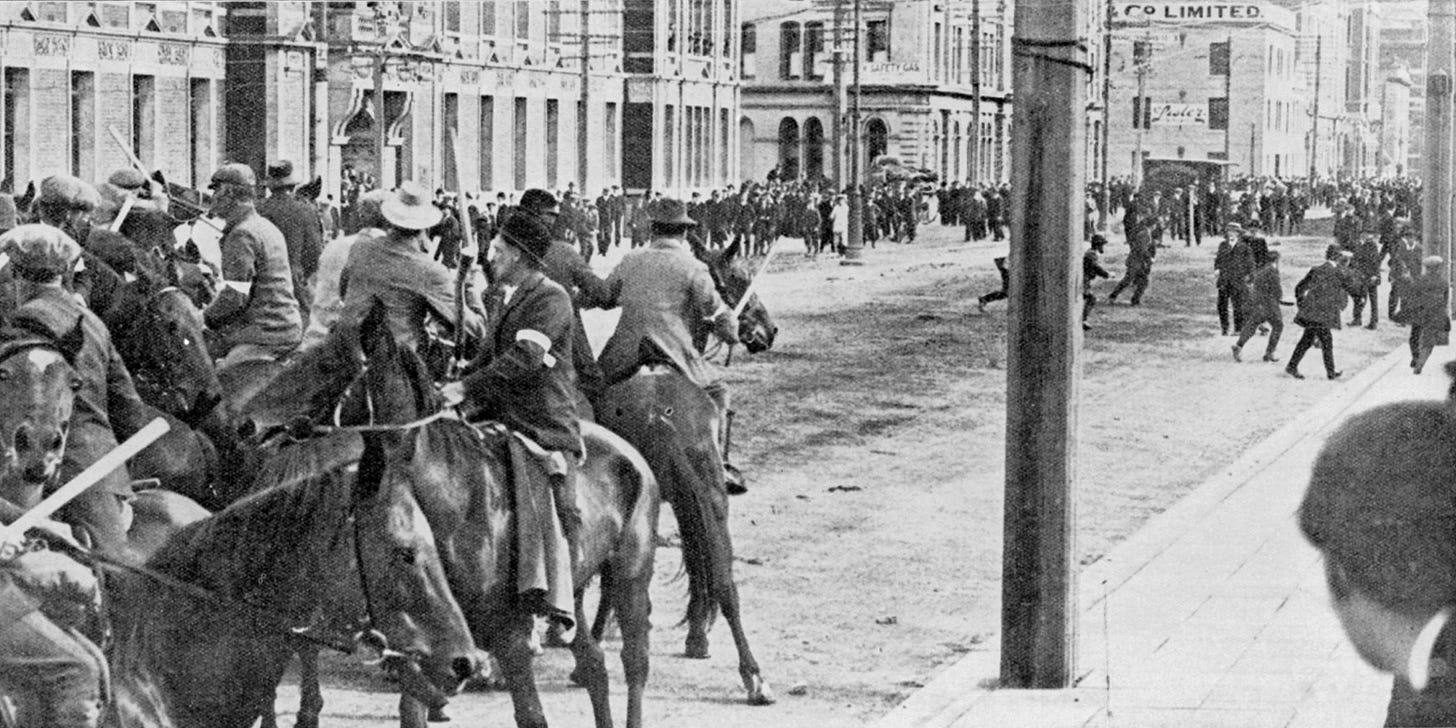
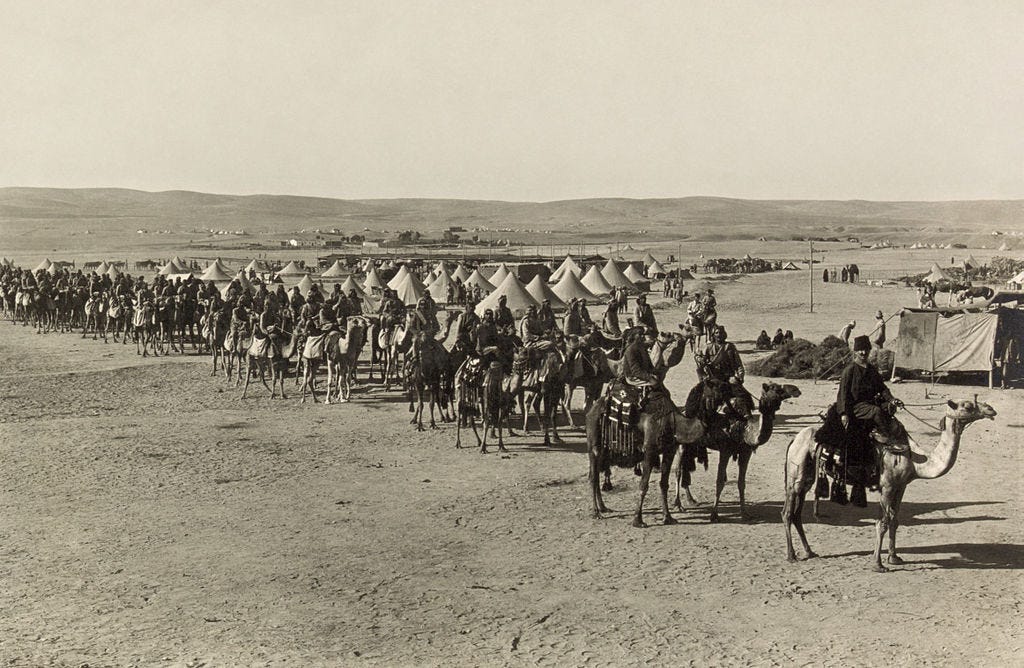
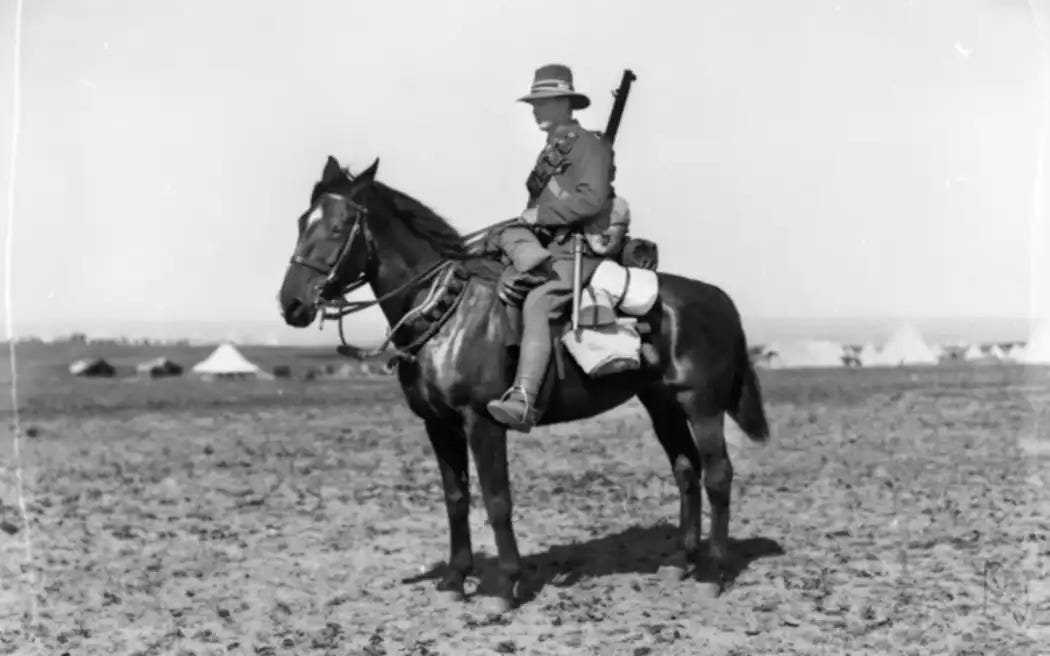
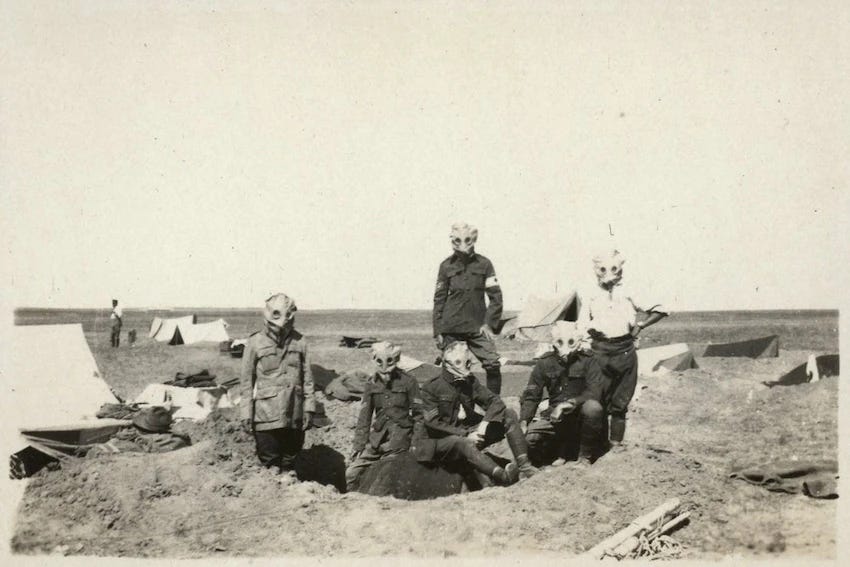
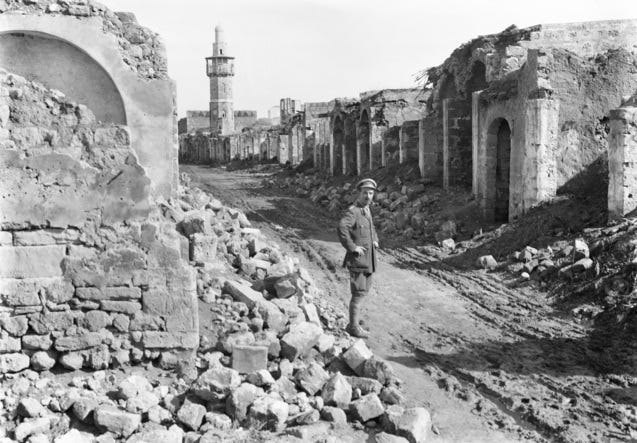
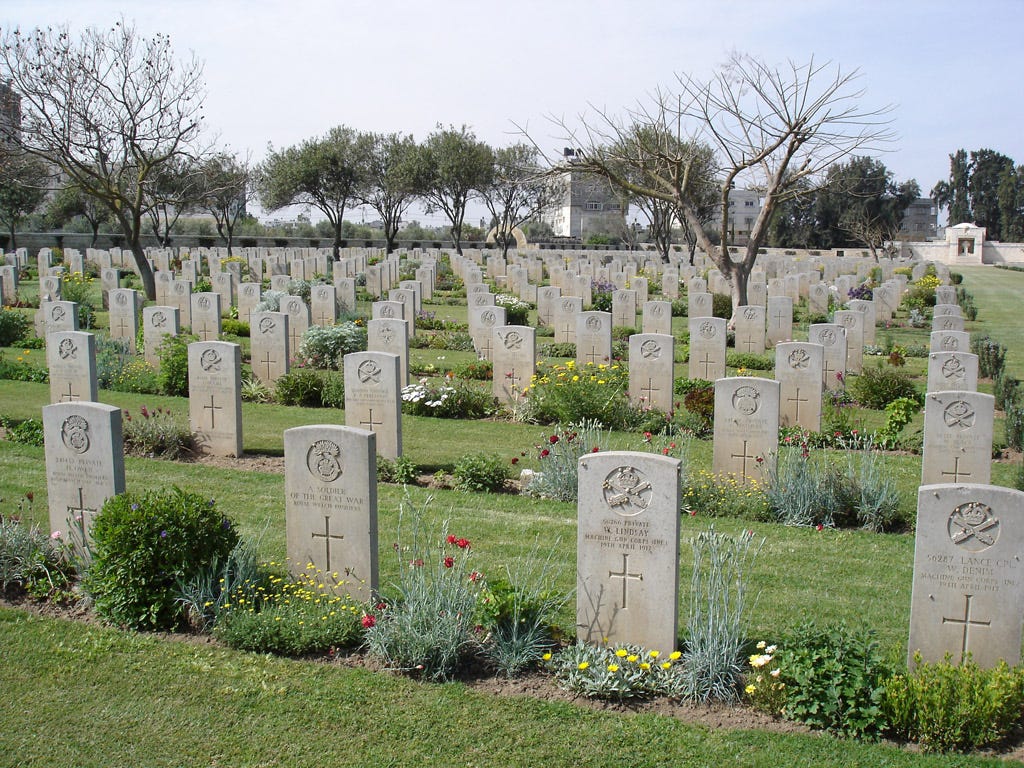
Great piece. I'll be recommending this to students to read.
Superb. The best apology we could make is recognising that a genocide is going on and meeting our obligations under the Genocide Convention. Full human and democratic rights for everyone from the river to the sea. (Whether it's one or two states is for all those living in those lands.)